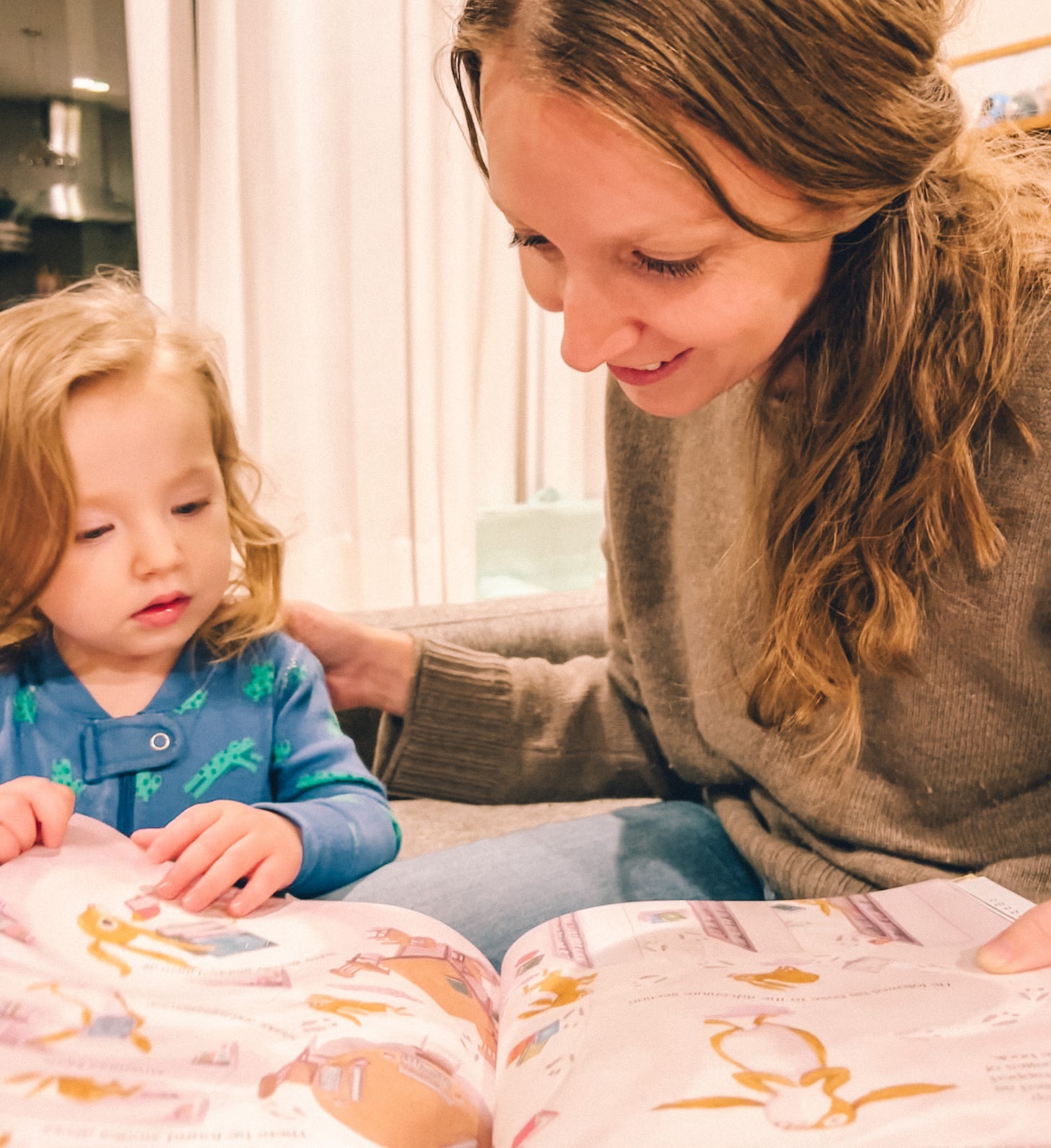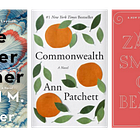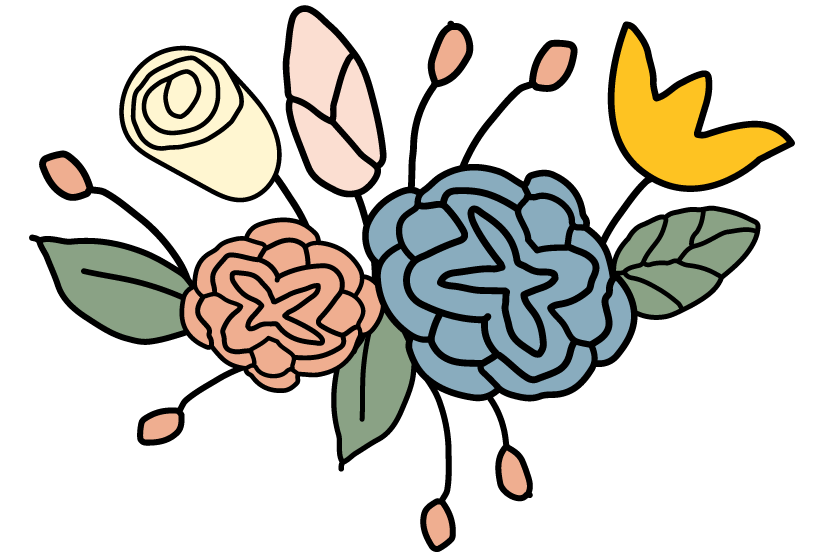What to do when you don't "get" a book, plus first picture books for littles
Ask FictionMatters Vol. 3 - November 14, 2023
Hey, readers!
It’s been quite some time since I answered reader questions, and I have some good ones for you today. One reader wondered what to do when you can’t make sense of a book that’s lauded by prize committees. Another asked about when and how to move from board books to picture books. I’ve gotten some fantastic requests recently, so I promise not to wait so long for the next edition of Ask FictionMatters. These posts will show up on occasional Tuesdays, and you can submit a question or recommendation request here or by email me at fictionmattersbooks@gmail.com.
Coping strategies for when you just don’t “get” a book
Kristen asked: What are your thoughts on thinking about or situating books that go way over your head? I recently finished [a book that] I did not get it at all! But in a very specific way. To me there is a difference between a book that I appreciated but recognize that there was more going on than I could comprehend at the moment (for me that is a book that is ripe for discussion with other smart readers and a possible re-read) vs. a book that I had no idea what to do with other than a few glimpses of something. I can't understand what others are seeing and I feel like I'm missing something important. How would you recommend approaching this conundrum?
I love this question!! I have not read the book Kristen referred to in her question so I can’t speak to it specifically, but here are four strategies I implement (often in some combination) when I just don’t “get” a book.
Let it go. You may just want to let slide the idea of getting this book. I have realized that some books just aren’t for me, not only in the sense that they are not to my taste, but also that I may be missing something essential for truly understanding a book. Perhaps that means historical context, knowledge of a literary fore-bearer, a familiarity with genre, or even a particular cultural ethos (This is generalizing, but Americans, for example, tend to read Russian literature as bleak, but that’s not necessarily how it’s received by Russian readers). This is not an excuse to avoid books outside one’s own perspective (which I know isn’t what you’re looking for, Kristen!), but rather an acknowledgment that we might try our best to understand a work and simply not have the tools required to access it. It’s completely fine to just let it go, but if it keeps niggling at you, continue on to ideas 2-4.
Let it percolate. If you’re still wanting to get more out of the book, let it percolate in your mind for a bit. When I’m mulling over how I feel about a particular book, I let the question, “what was that book trying to do?” float through my brain sporadically (I wrote a lot more about that question in an early edition of Reading in Public). To me, that’s a much more interesting and relevant question than “was it good?” because it’s only in figuring out what the book is trying to do that I can figure out if it succeeded. Perhaps the book was intentionally evasive and difficult to grasp because that adds to one of the author’s core themes. I’m currently having this experience with Trust Exercise. I haven’t fully discerned what I think that book was trying to do so I’m not yet sure if I found it successful. But the more I circle back to that question of intent, the closer I get to understanding my own opinion of it.
Look for answers. For better or worse, we live in an age when you can go digging for answers about a book. Consider searching for author interviews (Google or search your podcast player for the author’s name or title of the book) and reading other readers’ reviews of the book. I personally like to start with reviews in traditional media outlets, but you can also search Instagram or Goodreads to try to glean what other readers got from their reading experience. Again, I’d try to find reviews and interviews that get at the question, “what was this book trying to do?” If you find something that feels satisfactory, you can then determine for yourself whether the book was successful in achieving its aims. I haven’t done this yet for Trust Exercise, but it feels inevitable that I’ll need to seek outside help to fully understand this one.
Relinquish responsibility. I do prefer books that require some work or effort from the reader—I don’t want to be handed themes and interpretations on a silver platter. But it is also the responsibility of the author to give you enough to make sense of and if readers aren’t able to access the larger themes of the book, maybe it wasn’t particularly well done. I know that can be especially challenging when it feels like other readers do get it, but, trust me, if you feel this way, you are not alone! It’s okay to critique a book because you think it should have done more to help you make sense of it.
Starting picture books with littles
Julie asked: When did you start transitioning from board books to books with paper pages with Louise? How did you do it?
Such a fun question! We didn’t really do this deliberately and we haven’t fully transitioned (board books are still a big part of our life), but introducing picture books has been so great! I’d say we started reading some picture books to Louise around 18 months. We just happened to have a few simple stories in bigger paperback versions and she really gravitated to them. Once we recognized that she could pay attention to books with longer stories and more of a narrative, we started introducing more of them and rotating out some of the board books. It became pretty clear when she was kind of over books that were more about identifying objects and language acquisition (although she still picks those up occasionally). Now, at two, she is really into books with more complicated stories and most of those come in picture book form so that’s what we’ve been acquiring lately. I will say that Louise has never really been hard on her books physically so I don’t have any advice if that’s your hesitation. But I would say start with softcover books and see how those go first.
Not every kid enjoys longer stories at this age so don’t put any pressure on yourself to do this on a particular time line! Just try introducing them here and there and see how they interact with the book—both as a physical object and as a story. Also know that there will be many many times when you don’t make it to the end of a book, but that doesn’t necessarily mean that they’re not ready. Sometimes Louise is game to listen to the same long book five times in a row, but there are still picture books in our house whose endings I don’t know because we’ve never made it that far.
Finally, I think the right time to try is when you want to! It can be so hard to read the same one-word-a-page books over and over and it is such a delight to reading charming stories with her!
Here are a few first picture book favorites:
Dinosaurs, Dinosaurs by Byron Barton
Chirri & Chirra by Kaya Doi
Maybe by Christ Haughton
Blueberries for Sal by Robert McCloskey
Make Way for Ducklings by Robert McCloskey
Sam Who Never Forgets by Eve Rice
In case you missed it…
Readers, if you’d like reading advice for a particular reading conundrum or are in need of some book recommendations, please fill out this form or write to me at fictionmattersbooks@gmail.com with the subject “Ask FictionMatters.” I can’t wait to hear from you!
FictionMatters Newsletter is a reader-supported publication. To receive new posts and support my work, consider becoming a free or paid subscriber. If you’d prefer to support my work with a one-time “tip,” consider visiting my Buy Me a Coffee page.
For questions, comments, or suggestions, please don’t hesitate to reach out by emailing fictionmattersbooks@gmail.com or responding directly to this newsletter. I love hearing from you!
This email contains affiliate links. If you make a purchase through the links above, I may earn a small commission at no additional cost to you.
If you enjoyed today’s newsletter, please forward it to a book-loving friend. That’s a great way to spread bookish cheer and support the newsletter!
Happy reading!
Sara










If Lou is loving Robert McClusky, you all might enjoy this lovely little nonfiction book about him, sculptor Nancy Schön, and the duckling installation at Boston Public Garden:
https://www.penguinrandomhouse.com/books/667765/make-way-by-angela-burke-kunkel-illustrated-by-claire-keane/
When it comes to classics (specially Russian classics), one may need quite a bit of background history of the era and what people felt and thought at those times to really "get" the book. When I was in school the novel studies used to align with the history lessons, so we leraned about the history and read books from the same era around the same time. I really love some classic books that have a commentary in the front. Sometimes I opt not to read the commentary, but if I dont get the book, I will go back and read it to get some pointers.